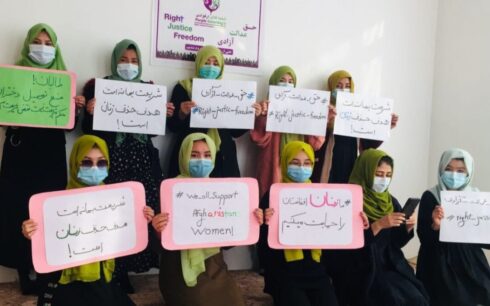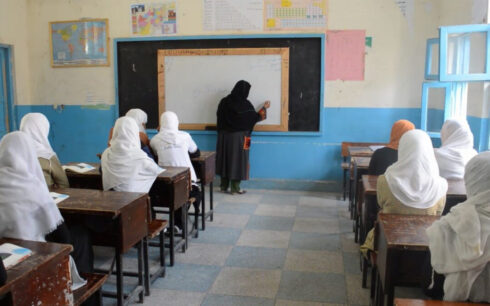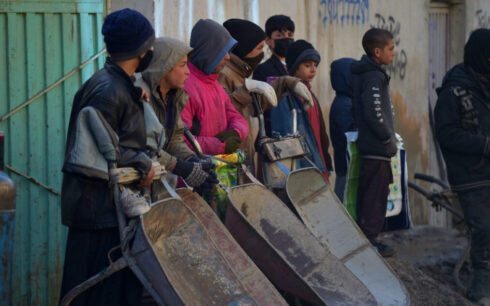A number of women and girls have urged the United Nations to include human rights issues, particularly those affecting women and girls, on the agenda of the upcoming Doha meeting on Afghanistan.
They also called on the international community to increase pressure on the Taliban to respect human rights.
Women’s protest movements and human rights activists are advocating for the U.N. to invite female representatives to the Doha meeting, scheduled to take place in 29 days. However, it remains unclear whether human rights issues will be included on the meeting’s agenda. Sources have indicated that the decision to invite civil society representatives, including women, has not yet been finalized.
Junbish Khodjosh Zanan, a women’s rights group, issued a statement calling on the U.N. to invite women protesters to the meeting. The group outlined seven key points:
- Welcoming the appointment of a United Nations Special Representative for Afghanistan.
- Inviting protesters who have continued their struggle for the past three years.
- Ensuring the meeting benefits the Afghan people, not the Taliban.
- Urging the United Nations to act as an impartial defender of nations.
- Supporting a government chosen by the people through democratic means.
- Considering the rights of women and minorities based on international conventions.
- Emphasizing that excluding anti-Taliban figures from the meeting is not in Afghanistan’s best interest.
“It is expected that the protesting women, who have not given up on their struggles for three years and have fought for a free Afghanistan and the protection of human rights, will be invited [to the Doha meeting],” said a member of the movement.
Some women and girls also urged the meeting participants to prioritize discussions on women’s education and employment. “Education is a fundamental right of every individual. The education of girls and the employment of women should be the first topics of discussion and given serious attention,” said Zahra, a resident of Kabul.
“The two previous Doha meetings brought no results for us—girls and women. We hope that this third round will bring results,” said Banafsha, another resident of Kabul. “Schools and universities should reopen for girls, jobs should be available, and the rights of girls and women should no longer be violated.”
Diplomatic sources believe the final agenda of the Doha meeting has not yet been clarified. However, human rights activists insist that human rights issues must be included. “The United Nations must prioritize human rights in the third round of the Doha meetings and reject the Taliban’s request to remove this issue from the agenda,” said Maria Noori, a women’s rights activist. “Support for human rights is fundamental to the United Nations’ mission, especially given the alarming violations in Afghanistan.”
“If this meeting does not discuss the dire human rights situation and the systematic oppression committed by the Taliban, especially towards Afghan women and girls, vulnerable ethnic groups, and religious minorities, it will undoubtedly confirm that this meeting is solely a step towards legitimizing the self-declared Taliban government in Afghanistan,” said Hadi Sahibzada, leader of Junbish Sadae Zanan.
Sources have indicated that discussions about the appointment of a U.N. special envoy, as adopted in a resolution last December, are expected to be off the table in the third round of the Doha meeting.





